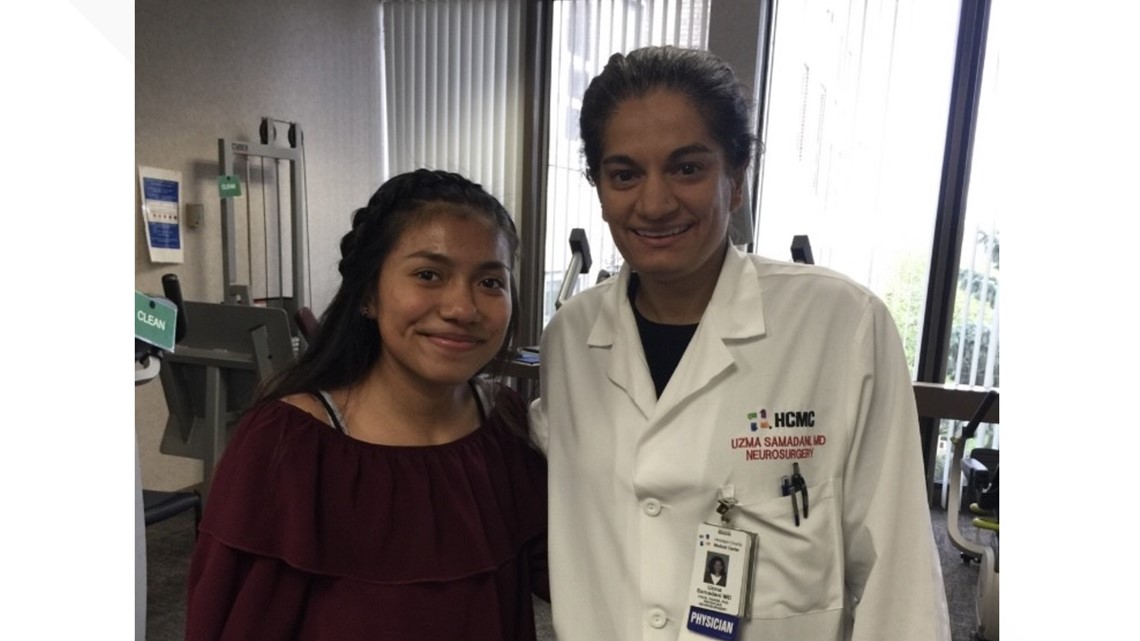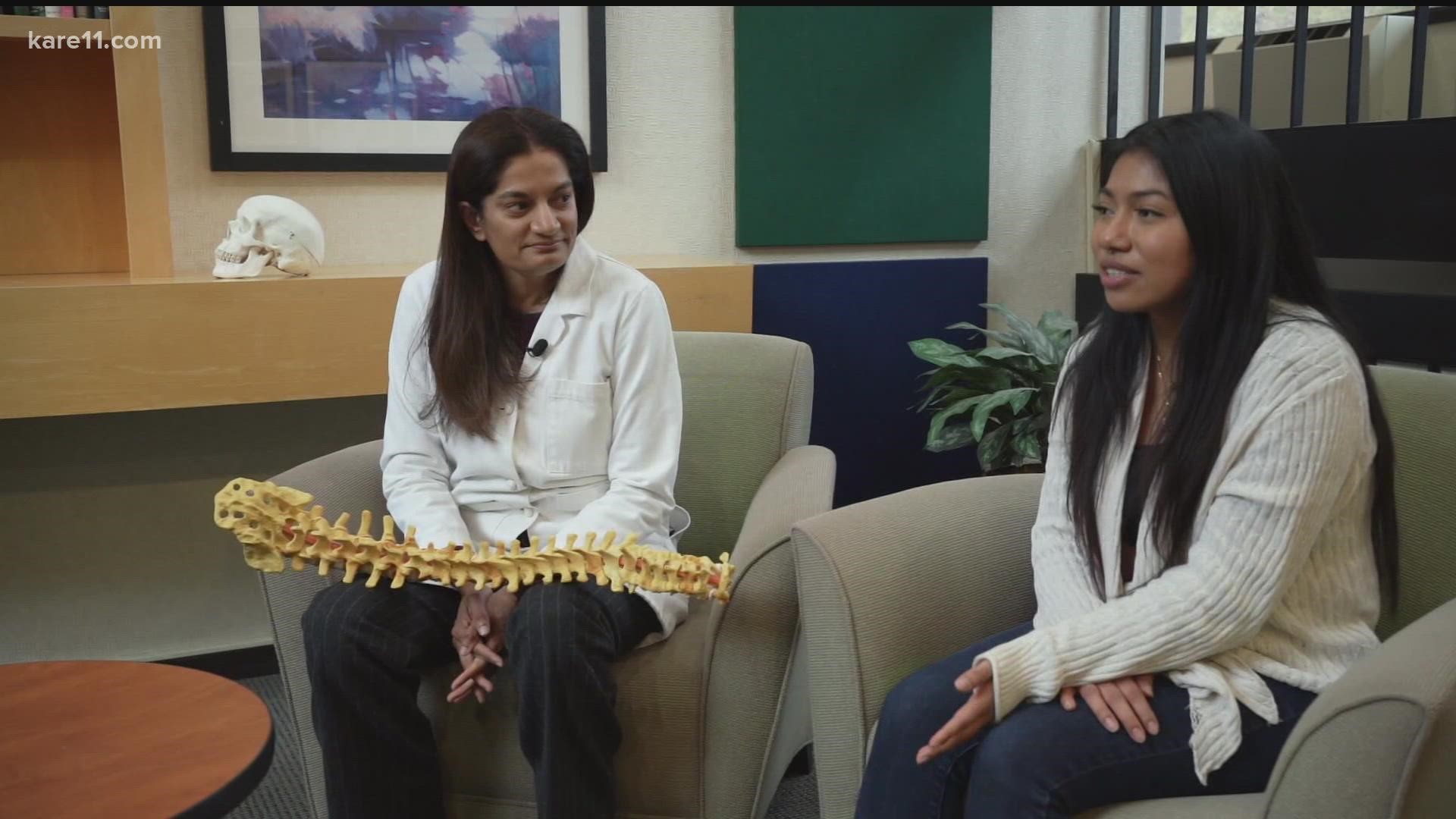MINNEAPOLIS — A Minnesota woman is cancer free five years after a doctor removed several tumors from her spine.
At the time, the surgery was risky and had never been done before.
Now, Dr. Uzma Samadani and Lupe Galeno Rodriguez are meeting again as the historic surgery is set to be published by the Journal of Neurosurgery.
I couldn't go upstairs or bend down to tie my shoe," recalled Galeno Rodriguez. "All those activities were hard."
"When I first saw the films, I immediately thought, 'This isn't a good idea,'" said Dr. Samadani, a neurosurgeon who's known for her technical skills.
She said Galeno Rodriguez had five tumors along her spine — three of which were as big as a clementine.
Some of the cancer was even inside the roots of her nerves, which are the size of a spaghetti strand. If they weren't removed, it meant Galeno Rodriguez faced certain paralysis.
"It's essentially like trying to remove the inside of a banana without opening the peel," said Dr. Samadani.


The surgery itself would go down in history. The doctor described these three record-breaking points:
Lupe's surgery is the most extensive resection of a spinal cord tumor ever documented in the neurosurgical journals (there are a few reports of three tumors removed, but none of five).
Lupe's is the longest case documented that was performed in the prone position (lying on her belly) without a complication (25 hrs of surgery; 28 hours of anesthetic time over 33.25 hours total; 2 surgeons, 2 anesthesiologists, 7 cRNAs). She lost (and had replaced) about 1/2 the volume of blood in her body. Among the complications that might have occurred are paralysis, neurapraxia, blood clots (resulting in pulmonary embolism and death), blindness, loss of bowel and bladder control, bleeding to death and others.
Lupe's five-year, disease-free (progression-free) survival is sufficiently long that it is now clear that the benefits of surgery outweigh the risks. This is among the longest progression-free survivals reported in the literature.
"You never know what's going to happen tomorrow, but at least we got this far and it bodes well for the next five years," said Dr. Samadani.
"Every single day I literally thank the universe, God and my parents that I get to live and like, simple walking, I'm thankful for that," said Galeno Rodriguez.
Galeno Rodriguez will graduate in May with a medical assistant degree, inspired by her own journey and Dr. Samadani's expertise.


Watch more local news:
Watch the latest local news from the Twin Cities in our YouTube playlist:

